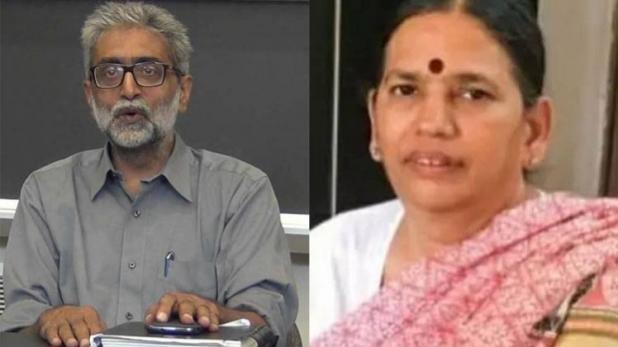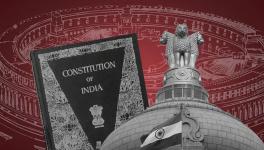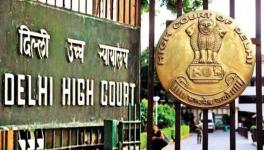Bhima Koregaon: Maha Govt Moves SC Against Delhi HC Granting Relief to Gautam Navlakha

Challenging the Delhi High Court order that ended Gautam Navlakha’s house arrest, and quashed the transit remand granted to the Pune police, the State of Maharshtra approached the Supreme Court on October 3 questioning the maintainability of the habeas corpus petition filed by the activist on August 28.
The HC contended the state erred in holding that production of the case diary was necessary while applying for transit remand.
After over a month-long house arrest of Navlakha – one of the five activists arrested in connection with Bhima Koregaon violence case, following multi-city raids conducted by the Pune police on August 28 – the HC freed him, and set aside the transit remand order on the ground that there were grave procedural irregularities.
The high court noted that the case diary and FIR in Marathi – a language not known to the accused and the magistrate – were furnished before the magistrate, and hence the magistrate could not have entered satisfaction regarding the necessity of remand. A Division Bench of Justice S Muralidhar and Justice Vinod Goel had also noted Navlakha was not informed about the grounds of arrest, and that he was denied proper legal aid.
Also Read: Bhima Koregaon: What the SC and Delhi HC Decisions Mean
“It is obvious that there was non-compliance of mandatory provisions of the Constitution and the Code of Criminal Procedure (CrPC),” Justice Muralidhar had said, adding that Navlakha’s detention has exceeded 24 hours which was “untenable”.
Contesting the order, the Maharashtra government has said, in its petition in the apex court, that the high court did not apply Section 167(1) of the CrPC “correctly”, while setting aside the transit remand order of the chief metropolitan magistrate, Saket.
“Section 167 (1) of the code of criminal procedure makes it clear that in case an accused is to be produced before the jurisdictional magistrate, then it is incumbent upon the police to produce the case diary. In case the police applies for transit remand before a Magistrate having no jurisdiction, then it is not necessary for the police to produce the case diary. In the case in hand, the Police arrested 5 persons from different places in the country. It was, therefore, not expected and not possible to produce the case diary before the concerned Courts,” said the State’s Special Leave Petition (SLP) filed in the top court.
It further states that the writ petition should not have been entertained by the High Court in light of the Supreme Court’s verdicts in the State of Maharashtra Vs Tanseem Rizwan Siddique and Saurabh Kumar Vs Jailor, Koneil Jail.
The High Court’s observation that the chief metropolitan magistrate passed the transit remand order without application of mind has also been challenged by the State. “It needs to be seen that, while passing the order of transit remand the Magistrate had gone through the application filed by the Police and he had heard the concerned Police officer. It is not possible/pragmatic to mention minute details while passing the order of remand. The Ld. Chief Metropolitan Magistrate has also mentioned about his thoughtful consideration to the submissions of the concerned police officer,” read the petition.
Defending that the Pune police followed laid down procedure of arrest, the petition stated that the High Court had “unnecessarily gone into that aspect”. It has been prayed that since the police has a “good case on merits”, the High Court order should be set aside, lest the State suffer “irreparable loss”. The State has prayed that Navlakha be kept under house arrest keeping in line with the Supreme Court order passed last week. “It was not necessary for the High Court to put an end to the house arrest of Navlakha, after the Supreme Court had extended the same for four weeks,” contended the State.
Navlakha was arrested from the national capital by the Pune police on August 28. Four other activists — Telgu poet Varavara Rao, activists Arun Ferreira and Vernon Gonsalves and trade unionist and lawyer Sudha Bharadwaj — were arrested from different parts of the country.
The arrests were made in connection with an FIR lodged following a conclave — Elgaar Parishad — held in Pune on December 31, 2017 that had allegedly triggered violence later in Maharashtra.
Following his arrest in the early hours of August 28, Navlakha had approached the Delhi High Court challenging the transit remand granted to the Pune police. Hearing the matter, the High Court had observed that it was not possible to make out a case from the documents placed before it. The court had posted the case for the next day (August 29), directing that Navlakha be placed under house arrest.
A plea was filed in the Supreme Court the next day on behalf of the five activists by noted historian Romila Thapar, human rights lawyer Maja Daruwala, economists Devaki Jain and Prabhat Patnaik and sociology professor Satish Deshpande against the police action. The top court was prayed to form a Special Investigation Team (SIT) to investigate the arrests. The court ceased the matter, and sent all the five activists under house arrest.
The majority of the Supreme Court bench of then Chief Justice Dipak Misra and and Justice AM Khanwilkar turned down the plea for setting up a SIT, with Justice DY Chandrachud dissenting and finding it a fit case for an independent probe. The court directed that the house arrest of the activists continue for another four weeks.
The arrested and detained activists were granted liberty to take recourse to “appropriate remedy as may be permissible in law”.
The Delhi High Court on October 1 set aside the transit remand order against Navlakha and put an end to his house arrest.
Sudha Bharadwaj withdraws petition in Punjab & Haryana HC
Meanwhile, the habeas corpus petition filed by Sudha Bharadwaj before the Punjab and Haryana High Court following her arrest by the Pune police has been withdrawn on October 3 to approach the same court under Article 226 or Section 482 of the CrPc. Her counsels RS Bains and Arjun Sheoran told the Bench of Justice Arvind Singh Sangwan that they will also be filing a petition for regular bail before the Pune Sessions Court.
As the hearing began, the court said it was inclined to dismiss the present habeas corpus petition, and it is not in agreement with the Delhi High Court order.
The Habeas Corpus petition filed through Ankit Grewal on behalf of Bharadwaj stated that the documents of arrest given to Bharadwaj were in Marathi, a language she does not understand. This, the petition stated, fell afoul of Section 165 and 166 of the CrPC. Further, neither the grounds nor the purpose of conducting the search in terms of Section 165(1) were made available to Bharadwaj.
Get the latest reports & analysis with people's perspective on Protests, movements & deep analytical videos, discussions of the current affairs in your Telegram app. Subscribe to NewsClick's Telegram channel & get Real-Time updates on stories, as they get published on our website.
























